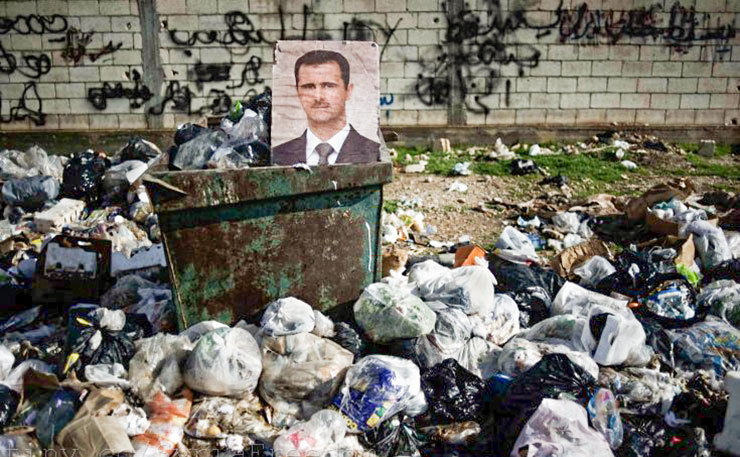A United Nations resolution around the bombing of Syria doesn’t make Australia’s position any less illegal, writes James O’Neill.
In my earlier article published by New Matilda on 16 November 2015 I set out the legal basis upon which Australia could have lawfully joined the bombing of (reputedly) ISIS positions in Syria. To briefly recap, under Article 51 of the UN Charter, a nation may only lawfully engage in military action against another nation under very limited circumstances: self-defence; UN Security Council resolution authorizing such action; and the collective self-defence of a third party.
Self-defence manifestly does not apply. Australia has not been and is highly unlikely to be, attacked by Syria. At the time the decision to bomb Syria was taken by the Australian government, officially in September 2015, there was no Security Council resolution. Since then the Security Council unanimously passed Resolution 2249 on 20 November 2015.
Notwithstanding much excited and ill-informed comment by certain sections of the media on the significance of that Resolution, it was not an authorization for any Member State to attack Syria.
The main operative paragraph (number 5) of the Resolution called on Member States “to take all necessary measures, in compliance with international law, in particular the UN Charter… on the territory under the control of ISIL also known as Daesh, in Syria and Iraq.”
The key words in the Resolution are “in compliance with international law, in particular the UN Charter.” It is why the Russian government, for example, was a party to Resolution 2249 yet continues to insist that the “coalition” bombing of Syria is contrary to international law.
None of the Australian commentariat thought to wonder why Russia would agree to such a resolution and still maintain its stance on the law. Russia’s position in part is that it is in Syria lawfully because it is there at the invitation of the sovereign government of Syria.
That brings us right back to Article 51 and the law that has developed pursuant to that Article.
The relevant rulings of the International Court of Justice have determined that the collective self-defence provision in Article 51 applies only to an attack by another State. Terrorist groups, irrespective of the rubric under which they operate (and there are a multitude in Syria), do not qualify as “States.”
The Australian government continues to refuse to release the legal advice (given on 30 September 2014) upon which it purportedly relies for its justification in joining the bombing attacks on sovereign Syrian territory.

On the morning of the publication of the New Matilda article referred to above however, the Foreign Minister Julie Bishop appeared on ABC Radio. Asked as to how Australia could legally join the American “coalition” in bombing Syria, Ms Bishop carefully stated that Australia relied upon the collective self-defence provision of Article 51 of the UN Charter.
The party being defended under that provision she said was Iraq, and that the government of Australia was reacting to a request from the Iraqi government for such help.
For the reasons already stated, in particular the rulings of the International Court of Justice, that alleged justification rests upon extremely flimsy to non-existent legal grounds.
The very party upon whom the Australian government purports to rely however has comprehensively demolished any remaining doubts on this question.
On 3 December 2015 the office of the Prime Minister of Iraq, Dr Haider Al-Abadi issued an official statement. The statement renewed the Iraqi government’s “emphasis on the lack of need for foreign troops to Iraq and that the Iraqi government is committed to not allowing the presence of any ground forces on the land of Iraq, and did not ask any side, whether regional or from an international coalition to send ground troops to Iraq.” (emphasis added).
The Prime Minister’s statement repeated the Iraqi government’s position that it had asked for air support to Iraqi forces, weapons, ammunition and training. It further demanded that no activity be undertaken without the approval of the Iraqi government.
It could not be clearer that insofar as Iraq sought assistance, that assistance did not extend to foreign forces bombing any territory outside the sovereign borders of Iraq. The Iraqi government clearly has a firmer grasp of the limits of military action imposed by international law than does the Australian government.
The statement by the Iraqi government is a direct rebuttal of the claims made by Ms Bishop. It removed the final fig leaf of legal justification from the claim made by the Australian government that its actions were in accordance with the UN charter and at the request of the Iraqi government.
It will come as no surprise to readers of New Matilda that that Iraqi Prime Minister’s statement, and its implications for Australia’s foreign policy, has received zero coverage in the mainstream media. Neither has there been any coverage of the clear contradiction between the Foreign Minister’s words (themselves one might be entitled to infer a response to the New Matilda article) and that of the Iraqi government.
As is so often the case, Australia’s foreign policy owes less to a principled and legal stand than it does to complying with the wishes of its masters in Washington.
It is difficult to see how this latest foray into illegality is in Australia’s real long term best interests.
Donate To New Matilda
New Matilda is a small, independent media outlet. We survive through reader contributions, and never losing a lawsuit. If you got something from this article, giving something back helps us to continue speaking truth to power. Every little bit counts.





